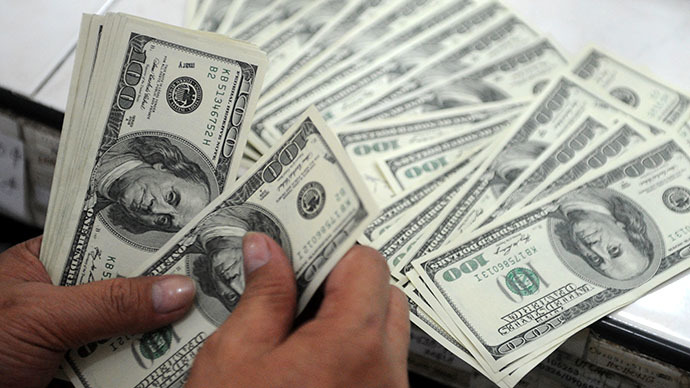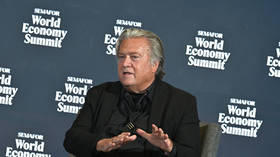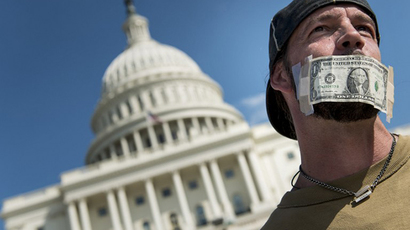This tax loophole saved the wealthiest Americans $100 bln

An unintended tax break has cost the U.S. government as much as $100 billion from the wealthiest Americans since the year 2000.
According to a new report by Bloomberg News, filings by the Securities and Exchange Commission revealed that hundreds of business executives, including Mark Zuckerberg of Facebook and Sheldon Adelson of Las Vegas Sands Corp., have exploited an estate tax loophole originating from a law passed by Congress in 1990.
“It’s very common,” said former Aetna Inc. CEO John Rowe, who also used similar tactics, to Bloomberg.“It’s become standard practice in estate planning.”
Since federal law imposes a 40 percent tax on assets that the wealthy leave their families, many have been able to avoid the estate tax by establishing Walton grantor retained annuity trusts, or GRATs. By quickly funneling money into and out of trusts – which are set to revert back to the trust’s creator rather than their family, and, thus become tax exempt – wealthy Americans are able to direct excess earnings to heirs without incurring the consequences of the estate and gift tax.
“You can certainly say we can’t let this keep going if we’re going to have a sound system,” Richard Covey, the lawyer who discovered the loophole and essentially invented the tax shelter, said to Bloomberg.
According to professor Edward McCaffery of the University of Southern California’s Gould School of Law,GRAT and other tax-evasion strategies reduce the estate tax to a voluntary system
The estate tax was originally created back in 1916 and applied to hefty fortunes at the time of an individual’s death. In 1984, Covey discovered a way around the law by creating trusts in the name of a wealthy individual’s children and using the extra income generated to pay down the estate tax.
In 1990, Congress passed a law barring this practice, leading Covey to uncover another loophole that lead to the creation of GRAT. The IRS fought this technique in U.S. Tax Court in 2000, but lost since the law itself didn’t specifically prohibit the practice.
Efforts to fix the system since have stalled. President Barack Obama and his allies have suggested eliminating or shrinking the loophole, but their attempts have gone nowhere among opponents who believe the estate tax shouldn’t exist at all. Meanwhile, Senate and House committees claiming to work on comprehensive tax reform bills have, so far, sidestepped the estate tax situation altogether
“From the Republican side of the aisle, you’re committed to killing the thing,” McCaffery told Bloomberg. He also said that other Democrats are reluctant to spend their political capital on an issue that only applies to a small number of people.
The fact that the people it does affect are typically wealthy campaign donors makes it an even tougher issue to rectify, since they want to keep the loophole exactly where it is.
Still, as Covey recalled the sheer amount of money that’s gone untaxed by the government since the first appearance of GRAT, he can’t help but be shocked.
“It boggles the mind,” he said.














